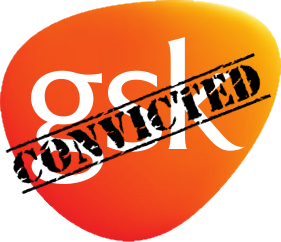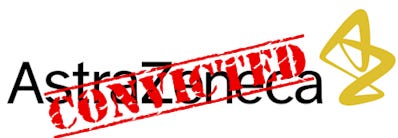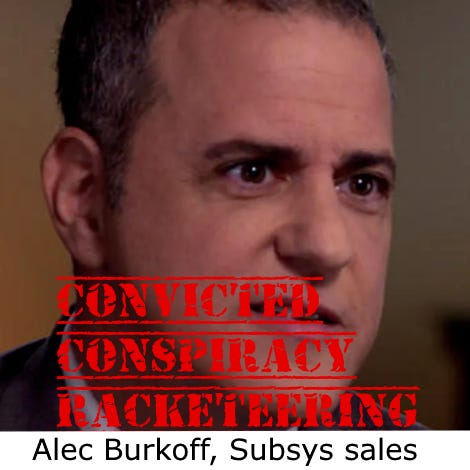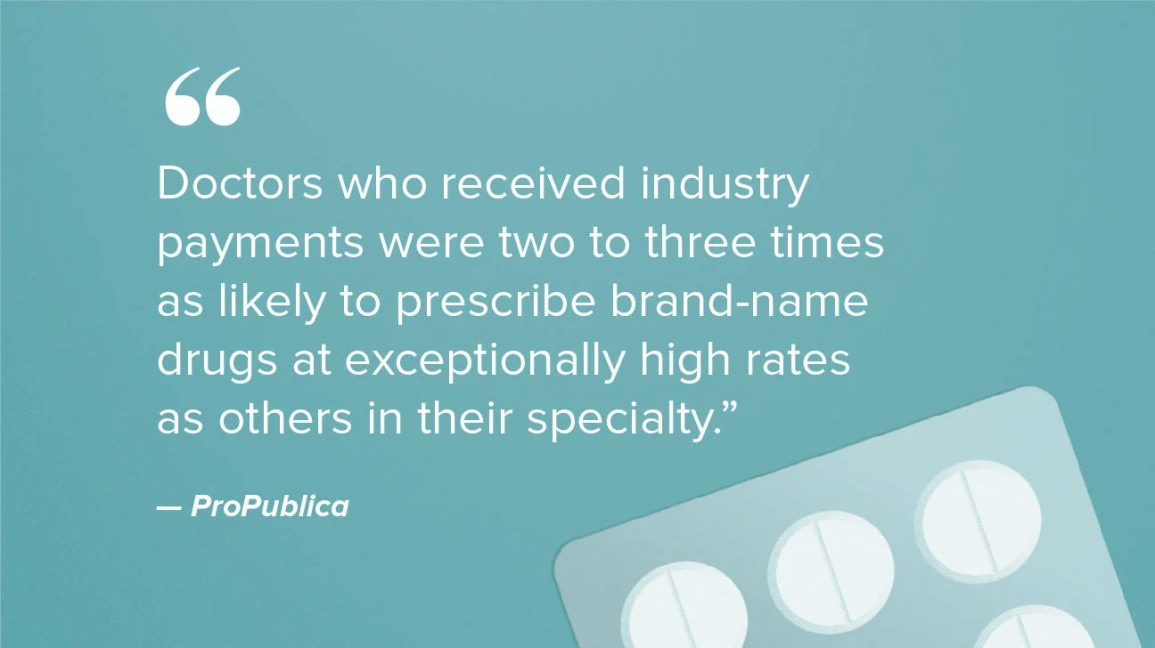This one is a bit long. So it will have to be a multi-part series.
The pharmaceutical industry likes to represent itself as ‘science.’ I’ll show you here that it’s a white-wash. It is actually a greedy industry — and it has no integrity.
The gross greed of US drug companies is well established. But that’s only a small part of the story that has not been told often enough or completely enough.
I aim to do that here.
The mainstream and alternative media has been complacent and complicit, not telling the us the real story.
The main reason for that is that pharmaceutical companies are major advertisers on the big news networks. Big pharma spent $15.6 BILLION on advertising in the US in 2023 alone.1
So that is why the mainstream media (TV, newspapers, magazines) won’t tell the truth about what big pharma does. They’re just too dependent on keeping that ad revenue.
Remember, what I’m covering here is only what is happening in the United States. Many of these companies are multi-nationals who operate all over the world.
Hundreds of criminal and civil court cases
Pharma companies often settle charges against them instead of going to trial. They quietly plead guilty and settle for hundreds of millions or billions that they pay to the US government.
They don’t want to go through a public trial that would cause their stock price and reputation to plummet.
Here is just a starter example
In September 2009 the US Dept of Justice announced its largest health care fraud settlement in its history. Pfizer paid up $2.3 billion for fraudulent marketing (illegal promotion of some of their products). Office of Public Affairs | Justice Department Announces Largest Health Care Fraud Settlement in Its History | United States Department of Justice
This is the company so many people were depending on to produce a “safe and effective” vaccine to end Covid.
Let’s go to Violation Tracker to see what else Pfizer has been up to.
There are 83 listed violations (2001-24) by Pfizer or companies it owns.
These ‘violations’ are not individual woopsies. They are each indictments involving dozens, hundreds, or thousands of strategically repeated crimes.
So, a single violation means a court cases in which criminal and/or civil penalties were paid as punishment for an undetermined (or undisclosed) number of violations of the law.
83 violations by Pfizer totaling $11.3 billion in penalties!
Here is a summary of the worst committed by Pfizer:
That’s well-organized crime. A company that commits crimes on a repeated basis and pays the fines and settlements as part of the cost of doing business.
But Pfizer is just one company. I’m going back to the Violation Tracker search tool to find out what each pharma biggie has been doing.
The settlements are usually a combination of payments to the federal government for crimes and payments to private parties for civil damages. The number of violations listed is for the parent company and all their sub-companies.
Remember, each ‘violation’ is a lawsuit that may be addressing potentially hundreds or thousands of actual criminal acts.
Merck — 131 violations!
Biggest penalties: $4.9 BILLION for safety violations. $2.3 BILLION for tax violations.
$950 million (2011) for misbranding, unlawful promotion, deceptive marketing, and off-label promotion of its drug Vioxx.
Subsidiary Serono S.A. paid $704 million in penalties (2005) for off-label promotion.
$650 million (2008) for kickbacks and medicare fraud.
Abbot Labs — 112 violations (2000-24).
Biggest settlement: $1.5 billion for off-label promotion. $600 million for violations of the False Claims Act.
Glaxo-Smith-Kline — 51 violations (2000-24).
Biggest violation settlements: $3 billion (2012) for numerous violations of the law; $750 million (2010) for poor manufacturing practices with multiple drugs.
AstraZeneca — 32 violations (2000-24).
Biggest violation settlements: $520 million (2010) for kickbacks and off-label promotion of Seroquel; $355 (2003) million for medicare fraud in violating the Prescription Drug Marketing Act.
Schering-Plough — 20 violations (2000-24).
Major violations: $500 million (2002) for poor manufacturing practices with Claritin; $435 million (2006) for off-label promotion, kickbacks, and medicare fraud; $345 million (2004) for medicare fraud and kickbacks.
Johnson & Johnson — 94 violations (2000-24).
Biggest violations & penalties: $2.2 billion in 2013 for off-label promotion and kickbacks.
Another company people were relying on to produce a vaccine to end Covid.
Eli Lilly — 20 violations (2000-24)
Biggest settlement: $1.4 billion (2009) for numerous crimes in promoting their anti-psychotic drug Zyprexa2 (a whole other story, which Jim Gottstein tells in his book The Zyprexa Papers).
A US court also penalized Lilly $183M for defrauding medicaid.3
Purdue — 12 violations (2002-25)
Big ones: Here is where a big one is not found on this wikipedia page, which has not been updated. It is the most famous recent drug company scandal that actually got some press coverage.
Purdue has the record for $8.33 BILLION (2020). That’s $5.5B in criminal fines and forfeitures plus $2.8B in civil liabilities for fraud and kickback conspiracies in illegal promotion of their drugs OxyContin, Butrans, Hysingla. They pled guilty and payed the record for the largest fines ever on a drug company.
Insys — maker of a highly addictive sublingual Fentanyl spray led to some people’s deaths.4
The conspiracies to commit crimes in the promotion of highly potent opioids went well beyond Purdue.
Insys founder and CEO John Kapoor was sentenced to over 5 years in prison (2020) for racketeering and conspiracy in the promotion of the potent opioid drug Subsys. Insys founder John Kapoor gets 5.5 years in prison for orchestrating opioid scheme | FOX 26 Houston
Sales Chief Alec Burlakoff pled guilty and was sentenced to over 2 years in prison.
Bristol Meyers Squibb — 144 violations!
Big penalties: $515 million (2007) for off-label promotion, kickbacks, and medicare fraud. $458 million (2024) for product safety violations. $300 million (2005) for fraud.
Takeda — 33 violations.
Big penalties: $2.4 BILLION in settlements (2015) to settle about 9,000 lawsuits for deceptive marketing of its drug Actos and concealing the cancer risk associated with it.5 6 This drug doubled the risk of bladder cancer, but the company covered it up.
TAP — 4 violations (2000-2011)
TAP was relatively short-lived. It was formed in 1977 as a joint venture between the two global pharmaceutical companies, Abbott Laboratories and Takeda Pharmaceutical Co. and was dissolved in 2008.
Of course, it continued the criminal behavior of both companies.
Big one: $875 million in penalties (2001) for many counts of fraud and kickbacks in promoting their drug Lupon. That’s $290M in criminal fines and $585M in civil liabilities.
Amgen — 24 violations (2002-24)
Biggest penalties: $762 million in penalties (2012) for unlawful promotion, deceptive marketing, kickbacks, and false pricing in promoting their drugs Aranesp, Enbrel, and Neulasta. $612M for off-label, unapproved promotion.
Bayer — 173 violations! And we have a new leader.
Bayer has its hands in all kinds of things to do with chemicals.
I don’t much care if this was over a drug or not, but they had to pay $9.6 BILLION in penalties for product safety violations in one (2020) court case alone. They also had part in a $775 million settlement (along with Johnson & Johnson) of about 25,000 lawsuits for deceptive marketing and covering up health risks associated with their drug Xarelto.
That’s about 25,000 people injured (with internal bleeding) by that drug.
Crime is business-as-usual for big pharma.
I think that’s enough to make the point that criminal behavior is standard operating procedure for the industry. Everybody lies, cheats, cons, bribes, and gives kickbacks, because everyone else is doing it. Gotta compete.
Profits are the final measure. And they far outweigh any criminal penalties paid.
Fines haven’t been enough to bring about a change in behavior.
Pharma paid over $61 billion in penalties from 1991-2021. The top 35 US pharma company profits in just 19 of those years (2000-2018) were $1.9 TRILLION.7
That’s far less than 3/10 of one-percent paid in fines. That’s a very cheap cost of doing business — whatever way they want to do it.
Let’s put this into proper ethical context.
If I were a charming, well-known person in your community who wanted to operate child care, but I had been repeatedly fined for violations or convicted of criminal activity, do you think I should get a license to do child care?
Everyone would agree that person shouldn’t.
Do we excuse the mafia because they’re involved in the ‘public service’ of garbage disposal or construction?
No. It’s the criminal behavior that matters, not the front business.
So why should we trust incorrigible criminal companies with making medicines?
Why aren’t the business licenses and corporate charters of repeat offenders being removed?
Pharma uses its profits to influence every level of the medical system.
“Researchers … found that 60% of departmental heads had a financial relationship with a drug company as a consultant, member of a scientific advisory board, a paid speaker, an officer, a founder, or a member of the board of directors.”
Paid “consultants” — In other words, they’re not just teaching the concepts formed by pharma, but are functioning as the promoters of pharma products.
But it may also be your medical doctor!
Some newspaper articles:
Pharma Pays $825 Million to Doctors and Hospitals, ACA’s Sunshine Act Reveals
An investigative report with database by Pro Publica: Dollars for Docs - ProPublica
From Annals of Internal Medicine:
“Financial payments from the drug industry to US physicians are common. Payments may influence physicians’ clinical decision-making and drug prescribing.”
… and …
“Despite longstanding concerns regarding the potential for industry influence on medical practice, industry payments to physicians remain common. Federal regulation – the Sunshine Act – has been limited to ensuring transparent disclosure of payments and has not directly attempted to reduce them.”
Why not ask your MD for a record of payments they’ve received from pharmaceutical companies?
Pharma sets the terms of what the ‘cure’ is (even if not backed by actual honest science).
They pay kickbacks to MDs to promote (often off-label) prescriptions.
You see their ads on TV or online or in magazines and go to your MD for the drug.
The MD was already prepared to prescribe anyway, but because you’ve been primed with certain sciencey-sounding phrases and keywords, you’ve made their job a lot easier.
The cycle continues.
The vast majority of the time a pharmaceutical product is not the answer or even part of the answer to health issues.
These pills offer only to control symptoms — but if you must keep taking them is that healing?
Or is that a manufacturer trying to get and keep customers?
It is time for a decisive change!
We each hold the power in our own health, but too many of us have been looking to the wrong place for help.
Look first to your own intuition, your own body when seeking healing.
You are the vehicle of your own healing — no matter what tools or people may assist you.
We may not be able to avoid mistakes. That’s how we learn. But we also learn from the mistakes of others so we don’t have to repeat them.
Health is a lifestyle. Many good doctors have been trying to tell us this for many years.
Exercise gently, but consistently.
Daily sunlight.
Eat modestly and eat a well-rounded diet.
Drink plenty of pure water.
Keep a positive attitude.
Stay connected with others for mutual support.
Protect your sleep and rest times.
The decisive change I’m asking you to make
> Look first for natural health approaches from solid traditions. And keep looking.
If you then still need a drug temporarily, fine. I’ve used them. There’s no shame in it. Protect your liver with appropriate antioxidants, but keep searching for the better, non-drug healing choice.
> Believe in your innate ability to heal.
Placebo effect is represented by the drug and medical industries as a fluke of sugar pills or a positive response to a “fake” treatment.
Placebo effect is a demonstration of the power of a person’s belief!
Invest that belief in yourself! Believe that you can heal because you want to.
Summary
If all I did was shine a revealing spotlight on drug companies but offer no alternative, would it net you much or any benefit?
Of course, I’m speaking as an herbalist who knows there is a better option. 90% of the time it is found in plant medicine and the rest of natural medicine.
The world’s greatest and oldest natural medicine traditions are still very effective — IF you have a good practitioner to support and teach you.
Sometimes people say there is a herbal option for every Rx drug. That may be true.
But I’d rather draw another relationship. For every condition humans or animals may suffer, nature — The Earth — has developed something for us that fits better with our nature.
The analogous relationship here is of us to nature. Back to a belief that our planet is trying to support us even when we seem to be disharmonious with it.
Earth supports us with food. Supporting us with medicine is no more difficult.
I offer free initial herbal health consultations.
Top Pharmaceutical Litigation Settlements of All Time: Top National Trial Lawyers for the Underdog































Thank you for your expose. I have skimmed it and plan to read it more in depth later. I don't trust Big Pharma either, unfortunately, there are too many people who are not willing to change their lifestyles and who prefer the "convenience" of a pill or medication for their health and because of them, Big Pharma will most likely not be held accountable and will continue to thrive. I have made peace with that. As long as I am not forced to take medication/pills/vaccines against my will...